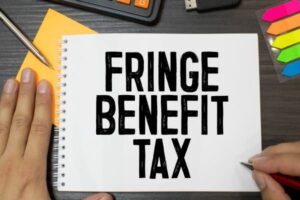The controversial case of the taxpayer who claimed a loss on their home
A decision by the Administrative Appeals Tribunal has the tax world in a flurry after the Tribunal found in favour of a taxpayer who sold the apartment she lived in for a loss, then claimed the $265,935 loss in her tax return as a deduction.
In this case, the taxpayer successfully argued that the purchase and sale of the apartment was a short-term profit making venture and that the loss generated from this could be claimed as a tax deduction. The tax rules generally allow you to deduct losses that relate to a commercial activity, although you cannot claim the loss if it is private or capital in nature. The taxpayer argued that she acquired the apartment in order to make a short-term profit and that the loss that was made on the sale should be deductible, even though she had lived in the property as her private residence across the ownership period. The Australian Taxation Office (ATO), as you can imagine, had a different point of view.
The facts of the case were:
- July 2015 – The taxpayer lived in a large family home. When her husband passed away, she entered into an ‘off-the-plan’ contract to purchase an apartment intended to be completed by 30 June 2019.
- December 2016 – The taxpayer was notified that completion of the off-the-plan apartment was delayed until 30 June 2020.
- May 2018 – Taxpayer settles on the sale of her family home on advice from her real estate agent that it was a good time to sell.
- May 2018 – Taxpayer settled on another apartment, as a purchaser, in the same complex that had been completed. She had money from the sale of her family home that she could use, and only intended to keep the property for a short period of time as she needed to use the funds to settle the off-the-plan apartment. Her position was that it was an opportunity to make a profit.
- April 2020 – The taxpayer entered into a contract to sell the apartment at a loss during the first COVID lockdown.
- July 2020 – Settlement on sale of the apartment occurred.
- July 2020 – The purchase of the off-the-plan apartment completed and was settled. A substantial portion of the proceeds of the sale of the other apartment, and some of the proceeds of the sale of the family home, were used to settle the off-the-plan apartment.
The Tax Commissioner’s position was that someone approaching the opportunity in a business-like manner as a profit-making venture would not live in the apartment and would have waited to sell if the market was not favorable.
The Tribunal set a low bar for proof of a profit-making intention and found that the fact that the taxpayer lived in the property was secondary to her profit-making intent.
The reason why this case is controversial is not simply because of the loss claimed by one taxpayer. It is because of the broader implications to property owners if the ATO determines that a transaction is commercial in nature and taxes any profit as ordinary income rather than under the Capital Gains Tax (CGT) provisions. For example, if the taxpayer in this case had made a profit instead of a loss, she would have paid tax on the profit at her marginal tax rate. She would not have been able to apply the main residence exemption or the CGT discount.
One of the important things to take from this case is that living in a property doesn’t necessarily guarantee that the sale of the property will be taxed under the CGT rules or will qualify for the main residence exemption. For example, property ‘flippers’ who buy and renovate a house may face a significant personal tax bill on any gain they make with no access to the concessions that exist within the CGT rules.
It will be some time before we know the full implications of this case and the ATO is yet to confirm whether it will appeal the decision. Either way, determining whether a transaction is taxed on revenue or capital account can be a complex process and it is important to seek advice before entering into transactions involving property.
The key influences of 2024
Uncertainty has reigned over the last few years, but can we expect more consistency as we head into 2024? We explore some of the key issues and influences.
Inflation and labour supply
RBA Governor Michelle Bullock stated, “Inflation is past its peak and heading in the right direction, but it is likely to return to target a bit more slowly than we previously thought.” While there have been encouraging signs, uncertainty remains. Domestically, inflation is persistent, growth has slowed but the labour market remains tight. And, the Australian economy remains at risk with uncertainty over the Chinese economy and ongoing international conflicts. At this stage, the RBA have not ruled out further interest rate increases.
The unemployment rate remains at 3.7% and the labour market tight. Wages grew 1.3% for the September 2023 quarter and 4.0% over the year, pushing wages to a 14 year high. High-skilled workers are particularly difficult to source, and we appear to have reached a point now where employers are unwilling to pay inflated salaries to acquire those willing to move.
Income tax cuts and the end of some concessions
From 1 July 2024, the stage 3 tax cuts that radically simplify the personal income tax brackets come into effect. The tax cuts collapse the 32.5% and 37% tax brackets into a single 30% rate for those earning between $45,001 and $200,000 – this is assuming
the May Federal Budget does not postpone or scrap them!
The superannuation guarantee rate will rise again on 1 July 2024 to 11.5%.
For small and medium businesses with group turnover of less than $50m, a series of concessions are set to end or reduce back to conventional levels:
- The Skills and Training Boost ends on 30 June 2024. The boost provides a bonus deduction equal to 20% of eligible expenditure for external training provided to your workers for costs incurred between 29 March 2022 and 30 June 2024.
- The Small Business Energy Incentive is scheduled to end on 30 June 2024, although legislation to introduce this concession still hasn’t passed through Parliament. The incentive is intended to provide an additional 20% deduction on the cost of eligible depreciating assets that support electrification and more efficient use of energy.
The instant asset write-off for businesses with group turnover of less than $10m is due to reduce back to $1,000 from 1 July 2024. The cost threshold is meant to be $20,000 for the 2024 financial year, but legislation relating to this measure hasn’t passed through Parliament yet.
Worker rights and rewards
There have been a myriad of changes and enhancements to workplace laws across 2023 and employers can expect greater scrutiny in 2024:
- A 5.75% increase in the minimum wage to $23.23 per hour from 1 July 2023.
- New rules and a 2 year limit to some fixed term employment contracts (no renewing).
- A landmark case that defined how to determine whether a worker is a contractor or employee. The ATO has followed through with new rulings to ensure employers are paying the correct entitlements. It’s essential that employers have assessed contractors to ensure that they are classified correctly.
- Greater flexibility for unpaid parental leave.
Tax on super balances above $3m hits Parliament
Legislation enabling an extra 15% tax on earnings on super balances above $3m is before Parliament.
While not a concern for the average worker, if enacted, those with significant property or other illiquid assets in their superannuation fund are most at risk, for example farmers and business operators who own their business property in their self managed superannuation fund (SMSF).
The issue is how the tax is calculated. The tax captures the growth in the balance of a member’s superannuation over the financial year (allowing for contributions and withdrawals). It captures both:
- Realised gains from the sale of assets, and
- Unrealised gains triggered by an increase in the value of superannuation assets. For example, if the value of a property increases.
If the member’s total super balance has decreased – the loss can be offset against future years.
The ATO will calculate the tax each year. Members with balances in excess of $3 million will be tested for the first time on 30 June 2026, with the first notice of assessment expected to be issued to those impacted in the 2026-27 financial year.
If you are likely to be impacted by the impending new tax, it is important to speak to your financial adviser. While keeping assets within superannuation will remain the best option for many from a tax and planning perspective, it’s important to ensure that you’re in the best possible position.



